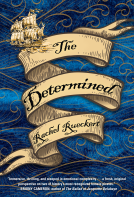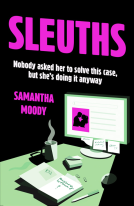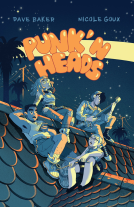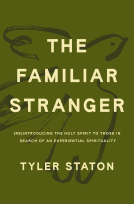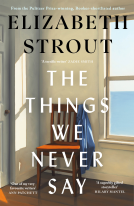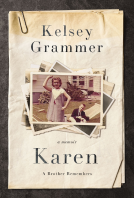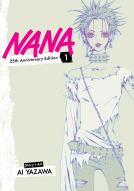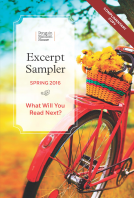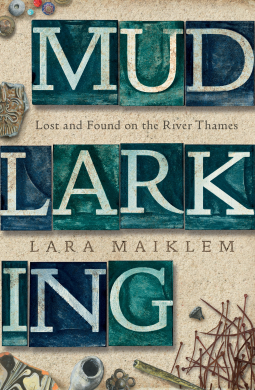
Mudlarking
Lost and Found on the River Thames
by Lara Maiklem
This title was previously available on NetGalley and is now archived.
Send NetGalley books directly to your Kindle or Kindle app
1
To read on a Kindle or Kindle app, please add kindle@netgalley.com as an approved email address to receive files in your Amazon account. Click here for step-by-step instructions.
2
Also find your Kindle email address within your Amazon account, and enter it here.
Pub Date Aug 22 2019 | Archive Date Aug 22 2019
Talking about this book? Use #Mudlarking #NetGalley. More hashtag tips!
Description
'Driven by curiosity, freighted with mystery and tempered by chance, wonders gleam from every page' Melissa Harrison
A Guardian and Financial Times Pick for 2019
For thousands of years human beings have been losing their possessions and dumping their rubbish in the River Thames, making it the longest and most varied archaeological site in the world. For those in the know, the muddy stretches provide a tangible link with the past, a connection to the natural world, and an oasis of calm in a chaotic city.
Lara Maiklem left the countryside for London in her twenties. At first enticed by the city, she soon found herself cut adrift, yearning for the solace she had known growing up among nature.
Down on the banks of the River Thames, fifteen years ago, she discovered mudlarking: the act of scavenging in the mud for items discarded by past generations of Londoners. Since then her days have been dedicated to and dictated by the tides, in pursuit of the objects that the river unearths: from Neolithic flints to Roman hair pins, medieval shoe buckles to Tudor buttons, Georgian clay pipes to discarded war medals.
Moving from the river's tidal origins in the west of the city to the point where it reaches the sea in the east, Mudlarking is the story of the Thames and its people as seen through these objects. A fascinating search for peace through solitude and history, it brings the voices of long-forgotten Londoners to life.
Available Editions
| EDITION | Hardcover |
| ISBN | 9781408889213 |
| PRICE | £18.99 (GBP) |
Average rating from 50 members
Featured Reviews
I don't read a lot of non-fiction, though I go through phases where I just want to read something different, but this looked interesting when I was on Netgalley so I requested it and here we are...
For folks who don't know, 'mudlarking' is the term used to describe people who go looking for items left behind in the mud by tidal rivers, especially rivers like the Thames where people have been living for a very long time. Our author is a hobbyist mudlarker, having turned to it when she was struggling with her mental health and life stresses, and the book is based on her experiences of various parts of the river.
While it's a story of what she has found, from the macabre to the everyday, it's also set in the context of the development of London and the changes it has experienced. I didn't really come across much in terms of the historical content I wasn't already aware of, but then I've always been a history nerd so maybe I'm not quite the target audience for those sections?
In general terms, it's an interesting book and opens the doors on a hobby I hadn't really thought about before - I've been to a number of museums in London and seen stuff recovered from the river, never really thinking about who found it and how. The slightly obsessive nature of it all comes across well but it's also the one minor downfall of the book - at times it devolves into lists ('I found this and this and this...') and I found myself rolling my eyes, not to mention dropping it from five stars to four. There's also an entire paragraph that is just repeated from earlier in the same section, though that might be a formatting error along with the odd formatting in general of the ebook version I received.
 Jenny K, Reviewer
Jenny K, Reviewer
I really enjoyed reading this book. The book is split into 13 areas along the Thames and is told in a lyrical, storytelling style. It’s part history of London, and part personal memoir, linking the author to her beloved Thames. I liked her style and found the book easy to read. Sadly the digital copy lacked any images and I think this type of book needs photographs to illustrate the story. However, I enjoyed the book so much I can see myself picking up a hard copy to read again. The book is an entertaining read and a great way of finding out about ‘mudlarks’,l the ins and outs of treasures washed up along the Thames, and the history of our great city.
I recommend following Lara Maiklem on Instagram where she documents many of her finds at @london.mudlark
 Ali G, Reviewer
Ali G, Reviewer
What a fascinating book this is. Lara Maiklem is a ‘mudlark’ and for the past fifteen years has been scavenging in the mud of the River Thames searching for items of historical value. Her journey takes us from the west of the Thames to the east and she weaves together the history of the areas she digs with fascinating stories about the items she discovers. Her book flows with tales like the river itself and the reader easily gets swept along with the enthralling stories around her booty. From Victorian toys to silver tankards, medieval buckles to an Amy Johnson flight pin and even on occasion a human bone. This is a wonderful history of past generations life by the river. I loved it!
 Richard L, Reviewer
Richard L, Reviewer
Review of whole book:
Began 8th July 2019.
Finished 5th August 2019.
What a joy; a pure delight.
This is a book of surprising value and lasting worth.
So wonderfully crafted and written, it covers the range of this peculiar pastime along the Thames from West to East. That is from Tidal Head to Estuary.
You immediately feel comfortable with this author in her hobby, obsession and delight for Mudlarking.
With wit and an open writing style, she opens up her world in a way that you can feel her passion, share her enthusiasm and marvel in her imaginations.
Here without prompting yawns or repetition Lara speaks of each area of the river bank she visits. Her finds and the history of that location are detailed and shared. She is an honest commentator, a well researched historical narrator and a person who shares fully of herself.
It is a real pleasure to read. In all these endeavours and historical asides she reveals more of herself and her journey into collecting things the river offers.
I found myself feeling that although Mudlarking would perhaps not be for me, I recognised its charms and if I was to don a pair of wellies it would be to spend sometime watching Lara at work and sharing at firsthand the all consuming love she has for this activity.
What makes this book so special is Lara’s writing and insights. She has that wonderful ability to let her mind wander, way beyond the present, and we follow in her imagination the provenance of her finds. Making up scenarios for how the objects came to be in the river; they have been preserved by the mud and spotted on the foreshore.
I feel my knowledge of the history of London has been deepened and enlarged by her comments on these objects, the riverside locations and ultimately the Thames itself.
I have always enjoyed spending time on the river and those journeys have enhanced my experience in visits to the capital. Now in this one book about a historical pastime I have received a fresh insight.
This is one of the best non-fiction books I have read in a long time. I am amazed it is Lara’s first move to becoming a published author. I’m sure it was a hard slog and kept her from those hours of solitude and peace beside her beloved river. Her efforts are well received and she can be so proud of her disciplined writing and research. Her approach sustained my interest throughout the journey along the river and I would recommend this book without reservation to all.
Previously: [please read my earlier review below. I stand by every word now that I have read the whole book].
Sampler:
I have only had the opportunity to read a taster - Chapter 7 - I believe London Bridge.
It is a glimpse into an activity I have never really given much thought to before. I have never been into metal-detecting but since childhood who has not enjoyed beachcombing, rockpooling and pond dipping? Mudlarking is an adult version of this sense of treasure hunting ironically named after a mud lark - ‘A mudlark is someone who scavenges in river mud for items of value, a term used especially to describe those who scavenged this way in London during the late 18th and 19th centuries.’
This is a wonderful idea since modern day scavenging isn’t for coal, food or items just washed into the river but a history lesson and more akin to river archaeology.
This book has something of an advantage in that it is written by someone passionate about the practice of mudlarking and curious enough to dig deeper than the mud of the river Thames. By that I mean Lara Maiklem brings both the search and the objects alive through her descriptive language and interest in history. Add to that an active imagination she takes the reader back to Roman times, Frost Fairs on the frozen river or the flames of The Great Fire of London.
Lara speaks also of moment of the find. The care and preservation of artefacts. The best light and intensity of the search and how without that moments scan, hesitation, acquired skills objects might forever remain undiscovered or be shattered by one’s next step.
I still have little interest in metal-detecting but the sense of being so close to the soul of the river, teasing out its bounty by effort and a good eye and reconnecting the present with the past has a value beyond the items themselves.
A good cook book sends you to the supermarket and the kitchen. A rambling tale gets you lacing your boots and out in the countryside. Lara’s delightful book will do the same. Rekindle our childhood memories, reconnect us with a sense of place and time. See value in everyday things and detest the polluting waste of plastic. Over and above everything, this chapter has given me a desire to read this book and appreciate the history of London by the items lost, captured in silt and revealed at low tide. Lara’s enthusiasm has enable my creaking knees and stiff back to get down on all fours and take a worm eyed view of London’s rich mud, sand and shingle. I was with the author as she delved, deduced and discovered her priceless treasures.
Reading is often about escape, entertainment and enlightenment Mudlarking brought me all three.
 Reviewer 542197
Reviewer 542197
Mudlarking is not a topic I know anything about and my knowledge of the geography and history of the Thames is patchy at best. Fortunately, prior knowledge isn't necessary to enjoy this book.
This isn't forensic study of the art of mudlarking nor is it a dry historical non-fiction. The focus on the daily lives of the people who have lived & worked on or near the Thames for centuries and the changes to the river & life over that time make it feel like a biography of the Thames - a living thing with an enormous supporting cast from throughout the ages. It is also partly a memoir with events in the author's life connecting to her time spent with the river is just as interesting and engaging as the more historical aspects.
It is an easy, enjoyable read with lyrical, evocative language. You can feel the wind, hear the water and the boats and the people, taste seaweed and hints of salt from the North Sea, and smell the scents of the river (both good and bad).
I loved reading this account of a little understood pastime, with its history of London and personal recollections told through objects found on the banks of the Thames.
In 1929 the Member of Parliament John Burns famously described the river as: “ The St Lawrence is water, the Mississippi is muddy water, but the Thames is liquid history ”. With 2,000 years of human possessions being lost to the Thames there are plenty of artifacts to uncover each with its own story to tell.
Here Lara Maiklem describes releasing bottles, pins, knives and even a deceased's ashes, from their liquid incarceration; each piece treated with dignity and many with a story to tell.
Part memoir; part mudlarking manual; weaving the history and personal insights of the river which has shaped the world's greatest city, this book is destined to become the seminal book on one aspect of the Thames, its foreshore.
 Lora M, Reviewer
Lora M, Reviewer
This was a rather interesting book about an activity I hadn't known about before, though it seems an obvious thing to do now. Mudlarking is searching through he shore of a river, in this case the Thames, at low tide to find valuables and artefacts the higher tide might have washed along. This can include some fascinating historical pieces from buttons to jewellery in the Thames.
I enjoyed reading about the different segments of the river and how the patterns of the tides differ from one to another, as well as the bits of London history that are revealed from the various finds. The personal connection the author expresses about the river really adds character to the narrative and makes me want to get a pair of wellies and go see what I can find myself! Though I'm not sure I would be up to the task in the end.
A fascinating narrative about a too little known activity. I just hope it doesn't result in inspiring so many mudlarking tourists that the lifelong hobbyists get crowded out!
I requested this book because I follow Lara Maiklem on twitter and find her social history of the Thames really interesting. Her book is also interesting, although I missed the photographs of the items she finds that social media is clearly a better medium for. I thought the structure of this was great, following the Thames through and out of London and weaving bits of history and the author’s own personal history into the non-linear narrative. I would say though that I’m not particularly interested in London, so for a lot of the history bits I kind of skim read them. That’s a matter of personal taste though, and if it had been about a city I’m more passionate about I’d have definitely been far more interested. So if you like history (really broadly - Maiklem covers from the Romans to about 50 years ago) and London I highly recommend this.
 Reviewer 297258
Reviewer 297258
This book makes you desperate to don wellies and get down to the foreshore. It’s a fascinating account of the ordinary treasures – and occasional genuine ones – Lara Maiklem has found mudlarking beside the Thames. There’s a personal story here, too, but it’s very much in the margins, complementing the personal histories Maiklem imagines from the objects she has discovered. This is superb addition to the literature of London.
 Stephen D, Reviewer
Stephen D, Reviewer
An interesting book that I would describe as mainly history but also autobiographical.
The author's knowledge of all the relevant sections of the Thames is obvious and well put together but I found the personal side of things somewhat less tightly constructed. In this respect I feel the book could have been edited and shortened which would have given a more concentrated read without losing any of the interest and knowledge expounded by the author.
My thanks to NetGalley and Bloomsbury Publishing for the chance to give an unbiased review.
